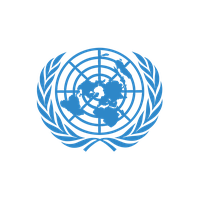
World Oceans Day
Taking place on 8th June every year.
Celebrating the ocean and our personal connection to the sea.
About the event
In 2008 the UN General Assembly decided that, as from 2009, the 8th of June would be designated by the UN as World Oceans Day - an opportunity to celebrate the ocean and our personal connection to the sea. This is a day to cultivate fascination for the ocean, raise awareness about its importance to humanity and learn about what needs to be done to protect it.
On this day the Ocean Project, working closely with the World Ocean Network, helps to coordinate events and activities with aquariums, zoos, museums, conservation organisations, universities, schools and businesses.
How to approach it
This is a key day to reinforce the importance of oceans to our environment and to our economies. Start by helping students to understand the vastness of the ocean by talking about how it covers 71% of the Earth’s surface with over 80% of it being unmapped and unexplored. It harbours 89% of all animal life and is one of the largest carbon sinks in the world with coastal habitats storing 5 times more carbon than tropical rainforests. Explain to your class that this means protecting it is extremely important for a healthy planet. Capture their interest by showing documentaries or pictures of coral reefs or other marine environments. Ask them: what’s your favourite marine animal? See if they can research a new one that interests them.
Next, you could mention that 350 million jobs are linked to the ocean, with 85 countries involved in the $102 billion fish trade. With these facts you can explain that the ocean has to be protected as a vital habitat, carbon sink, and resource for feeding a significant proportion of the world’s people. This is a great time to bring in concepts of sustainable consumption. Most of the main problems facing ocean habitats are to do with pollution and exploitative overfishing. Discuss with students that to have a healthy habitat we all need to manage what we put in and how much we take out. In order to have a rich, fertile marine system these processes must be kept in check.
Marine conservation also brings up important conversations about international cooperation. Because ocean habitats regularly cross over borders into international waters, it is essential that multiple countries work together to manage marine habitats. Engage students in a discussion about shared natural resources and how teamwork could help manage them. Ask: how do the best teams work? How could politicians best sit down and work together to protect the ocean?
Organised by
United Nations

Conversation starter
Did you know that 89% of all the Earth's animals live in the sea? Even though the oceans are so large, they are being damaged by the way we live our lives. Currently, too many fish are being caught and fossil fuels are making the ocean more acidic. If the ocean could talk, what do you think it would ask us to do?




